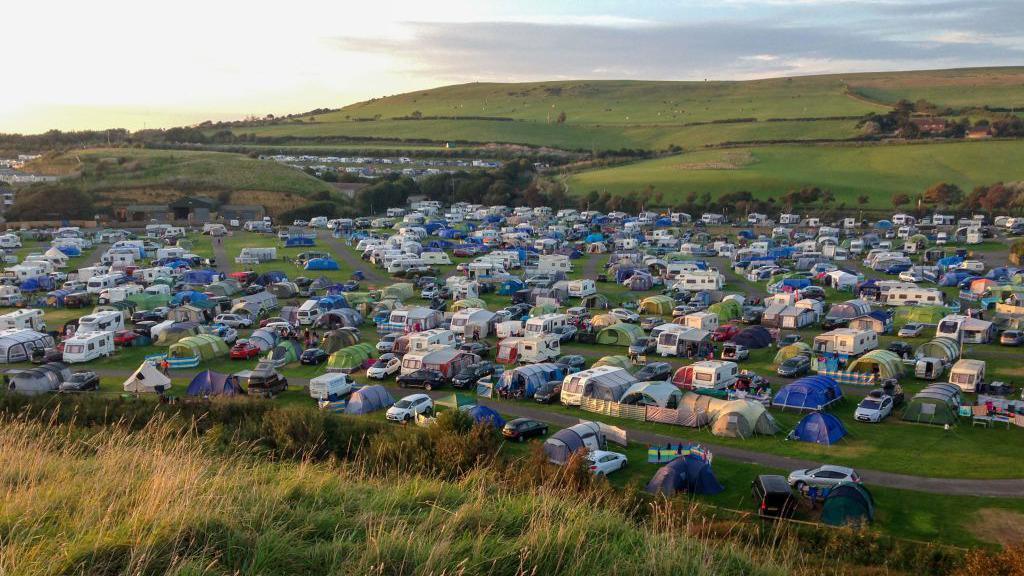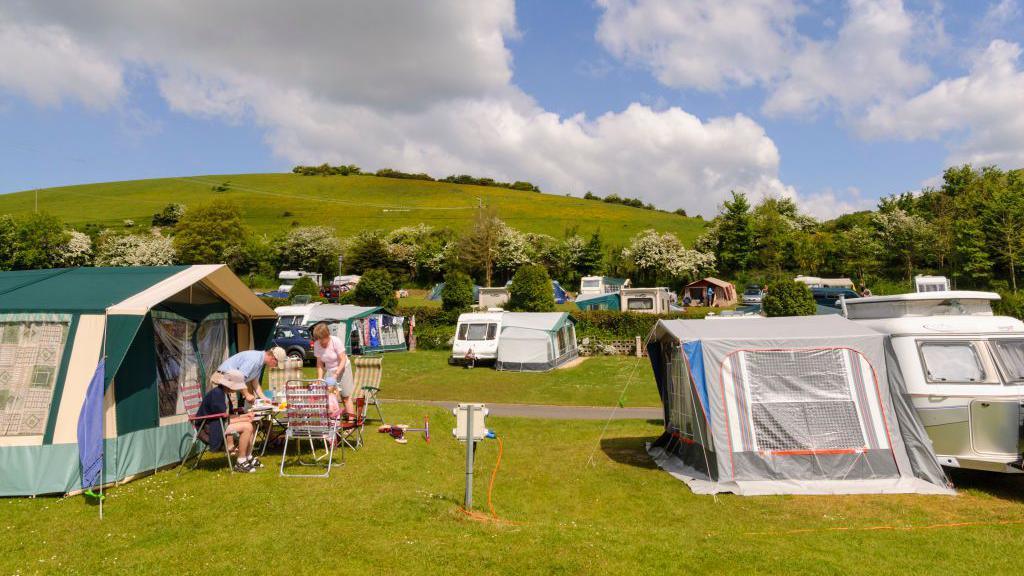Council responds to campsite rules criticism

A group has criticised the way a local authority has handled rules relating to campsites
- Published
A council has responded to criticism from a newly-formed group which claimed many campsites may not be able to open this year because of the way the authority was interpreting the rules.
Dorset Camping claimed the local authority was misinterpreting planning guidelines from Natural England, meaning some established campsites that had been operating "for many years" had "suddenly and unfairly been threatened with enforcement and closure".
The group said the county could miss out on tourist income this year as a result.
A Dorset Council spokesperson said the authority was following procedures to protect the county's natural environment.
In a statement sent to all Dorset Council councillors, Dorset Camping said the authority had "imposed unfair, unreasonable and hugely onerous restrictions on dozens of much-loved Dorset campsites".
It accused Dorset Council of enforcing fees and "lengthy" application processes that had "little or no likelihood of success".
The group said the restrictions could cause campsites to close, which would encourage wild camping and damage the local environment.
"We love and care for the environment and the local ecology of this beautiful part of the country," the group said.
"We seek only to be treated fairly, to be consulted reasonably and to assist with the protection of our countryside."

Some campsites that have run for years have been refused permission, the group said
A Dorset Council spokesperson said: "When development is proposed, we need to assess whether there is likely to be a significant effect on a designated habitats site.
"As part of the assessment process, we are required to consult with Natural England to seek their advice on the potential impact of the proposal.
"The response we receive from Natural England informs our decision about the likely significant effect."
They said "mitigation measures" were needed if it was deemed there was "likely to be a significant effect arising from the proposed development".
"We must be satisfied that development proposals do not lead to adverse impacts upon the integrity of designated habitats sites," the spokesperson said.
The BBC has approached Natural England for comment.
Follow BBC South on Facebook, external, X (Twitter), external, or Instagram, external. Send your story ideas to south.newsonline@bbc.co.uk, external or via WhatsApp on 0808 100 2240, external.
Related topics
- Published2 October 2023
